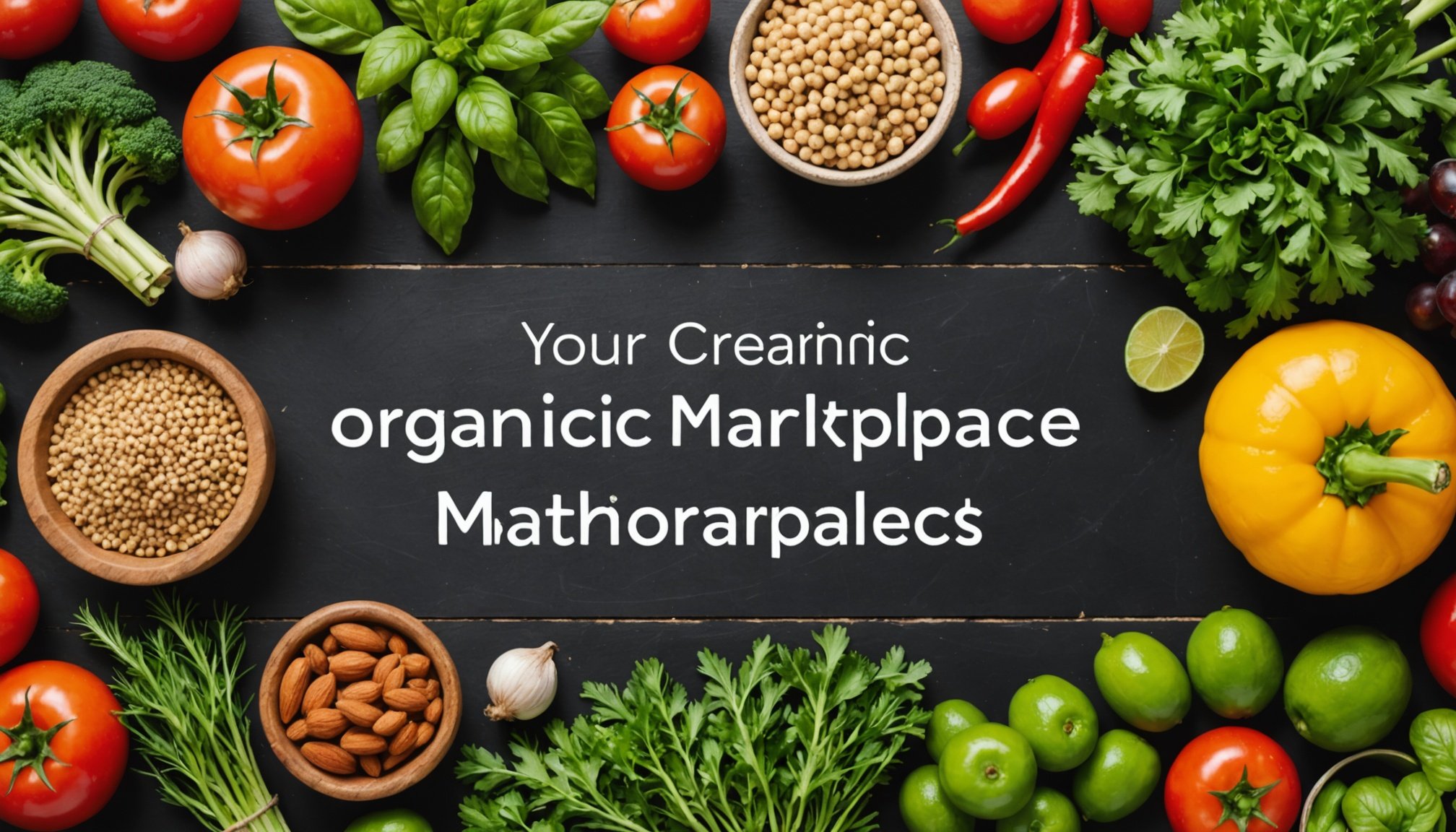Understanding Local Health Regulations in the UK
Navigating the health regulations surrounding organic food in the UK can be complex, yet it’s vital for any marketplace handling such products to ensure compliance. Local and national food safety standards play a critical role in maintaining the integrity of organic food offerings. Businesses dealing with organic goods must be well-versed in regulations that govern everything from packaging to sourcing, highlighting the importance of UK compliance.
Organic food businesses must adhere to specific health regulations such as the use of certified organic ingredients and transparent supply chain details. Compliance isn’t merely a suggestion—it’s a legal requirement that secures consumer trust and promotes public safety.
In parallel : Navigating uk import rules: essential strategies for starting your gourmet food business
Failure to meet these standards can lead to significant repercussions. Consequences of non-compliance include hefty fines, loss of organic certification, and in extreme cases, business closure. This underscores the need for marketplaces to implement rigorous checks and training programs, equipping staff with a thorough understanding of health regulations. By prioritising compliance, businesses not only align with local laws but also enhance their reputation and consumer confidence.
Legal Requirements for Establishing an Organic Marketplace
Understanding the necessary legal requirements is crucial when starting an organic marketplace. To ensure compliance, you’ll need to register your business and obtain the appropriate organic certification, while adhering to safety regulations.
Also to see : Kickstart your urban gardening journey in the uk: a comprehensive guide to understanding local farming regulations
Business Registration Process
To start, you must complete a food business registration with your local authorities. This step legally recognizes your business and ensures compliance with health regulations. Often, this involves filling out forms with specific details about your operations and may require an inspection.
Certification for Organic Products
Next, acquiring organic certification is essential. This certification verifies that your products meet organic standards, which typically involve sustainable farming practices without synthetic pesticides. Notable certification bodies, like the Soil Association, provide guidelines and an evaluation process you must navigate.
Understanding the Food Safety Act
Lastly, familiarize yourself with the Food Safety Act, which governs how food businesses operate. This legislation outlines provisions for maintaining hygiene, proper storage, and the accurate labeling of organic items. Complying with these standards is non-negotiable for any organic marketplace, safeguarding both your business and its customers. Focus on these key provisions to maintain trust and integrity in your offerings.
Sourcing Organic Products Responsibly
When it comes to sourcing organic products, precision and care are paramount to ensure quality and sustainability. Finding certified organic suppliers is the first crucial step. Seek out suppliers who can provide certification and documentation, ensuring they adhere to rigorous organic standards. Identifying reliable organic product suppliers involves researching their farming practices and their commitment to environmental sustainability.
Finding Certified Organic Suppliers
Certified organic suppliers must pass stringent checks to comply with global standards. Make sure that your potential suppliers hold legitimate and up-to-date certifications. Verify their credibility through certification bodies recognized at national or international levels. This guarantees that the sourced organic products meet quality benchmarks.
Establishing Strong Supplier Relationships
Developing robust supplier relationships is equally important. Building a rapport with local farmers and producers fosters collaboration and trust. Engage in open communication to understand their practices and support them in maintaining high standards of sustainability and organic production. Establishing long-term partnerships with them can enhance product consistency and reliability.
Ensuring Product Quality and Safety
To maintain product quality and safety, implement stringent quality assurance processes. Regular audits and inspections of suppliers’ production processes ensure compliance with safety standards. Adopting these practices minimizes risks related to contamination or mislabeling, promoting consumer confidence and product integrity.
Effective Marketing Strategies for Organic Food Marketplaces
Creating a successful presence in the organic food marketplace requires a blend of savvy marketing strategies and authentic brand communication. By focusing on organic branding, businesses can attract a loyal following of health-conscious consumers. Establishing a brand identity that highlights sustainability, quality, and transparency is crucial. This not only differentiates your products but also builds trust and credibility among your audience.
Building a Brand Identity
Your brand identity should be consistent yet adaptable. This means clearly defining what your brand stands for and ensuring that every piece of marketing material reflects these values. Consider showcasing your organic certifications and the story behind your produce. This resonates well with consumers who value ethical sourcing and environmental responsibility.
Utilizing Social Media and Online Platforms
Harnessing the power of digital marketing is essential for reaching a wider audience. Social media platforms offer direct access to consumers, providing a place to share content and engage in meaningful conversations. Create visually appealing posts and informative content that speaks to your audience’s lifestyle, encouraging them to share your organic branding message.
Community Engagement and Local Promotions
Forming connections through community engagement can enhance visibility and support. Hosting local events, participating in farmers markets, or offering promotions can create buzz. These strategies help in building a loyal consumer base that appreciates your commitment to quality and local community support.
Case Studies of Successful Organic Marketplaces in the UK
In recent years, several UK-based organic marketplaces have thrived by embracing innovative strategies and showcasing powerful success stories. Examining these case studies provides valuable insights into the best practices that have driven their triumph in the competitive organic sector.
Examples of UK-Based Organic Marketplaces
These success stories start with companies like Riverford Organic Farmers and Abel & Cole. Riverford has excelled by committing to sustainability and direct-to-consumer strategies, which involve delivering fresh organic produce directly to customer doorsteps. Similarly, Abel & Cole has built a loyal customer base with a strong focus on ethical sourcing and environmentally friendly delivery systems.
Analyzing Successful Strategies
The success of these marketplaces often hinges on authenticity, transparency, and consumer trust. By maintaining transparent supply chains and prioritising customer engagement, such companies have fostered strong relationships with their clientele. This commitment not only enhances brand reputation but also ensures steady growth in consumer demand.
Factors Contributing to Success
Key factors driving these success stories include embracing technology for efficient logistics and marketing, diversifying product offerings, and adaptive business models that align with consumer trends. Additionally, crafting compelling narratives around health, wellness, and sustainability resonates deeply with the ever-growing demographic of eco-conscious consumers.
Resources for Navigating Health Regulations in the Organic Sector
In the ever-evolving organic sector, staying informed about health regulations is pivotal. Leveraging the right resources ensures compliance and fosters business growth.
Government and Regulatory Websites
Government websites are essential as they provide official regulatory guidance. These platforms offer comprehensive data on organic standards, labelling requirements, and health regulations. Regular updates mean businesses remain informed about any regulatory changes. Familiarity with these websites allows stakeholders to confidently meet and exceed compliance standards.
Industry Associations and Support Groups
Industry associations and support networks play a crucial role in navigating the complexities of regulations. These groups provide a platform for businesses to share experiences and solutions. By engaging with such associations, companies can access tailored advice, fostering a sense of community within the organic sector. Support networks often organise seminars and webinars to discuss regulatory trends, enabling members to stay ahead of potential challenges.
Educational Resources and Workshops
Workshops and educational materials are invaluable for deepening regulatory understanding. Many organisations host training sessions that offer hands-on experience in dealing with health regulations. Educational resources, such as guides and infographics, simplify complex regulatory language, making it accessible. These learning opportunities equip businesses with the tools to approach regulations proactively, ensuring sustained compliance and operational excellence.











